
Find Help
More Items From Ergsy search
-

How does binge drinking affect mental health?
Relevance: 100%
-
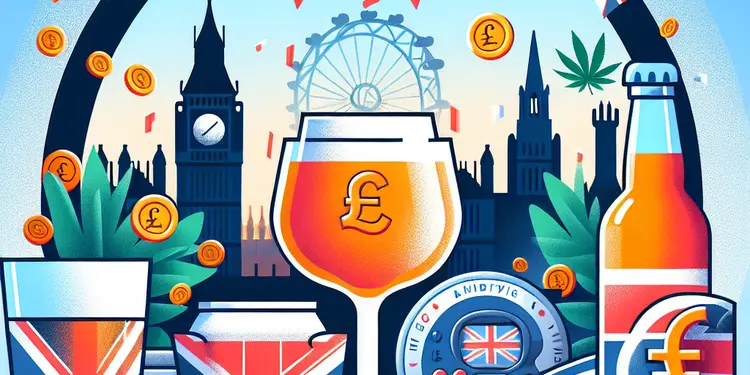
Can binge drinking affect physical health?
Relevance: 87%
-
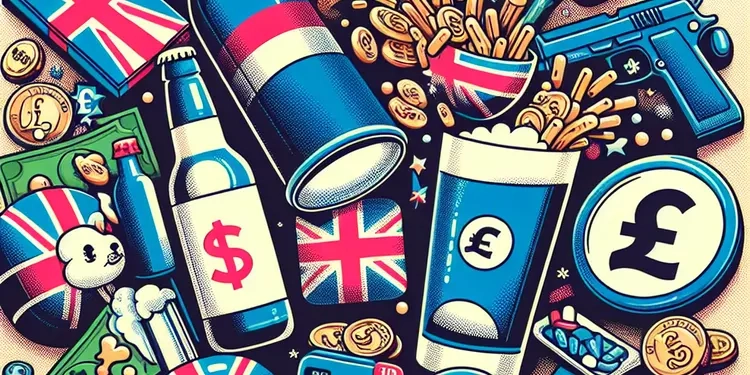
What is binge drinking?
Relevance: 82%
-
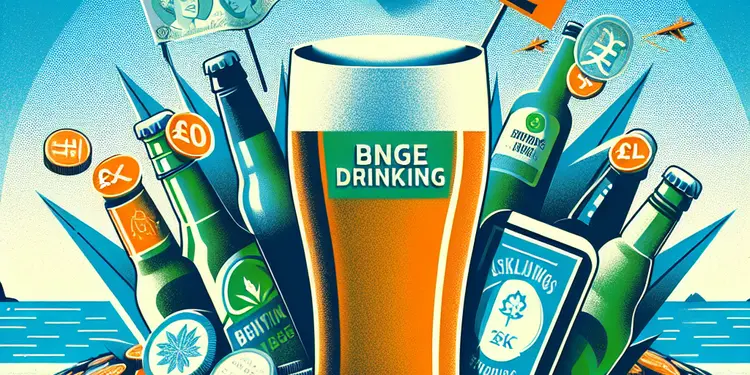
What are the risks associated with binge drinking?
Relevance: 78%
-

How is binge drinking typically defined?
Relevance: 77%
-
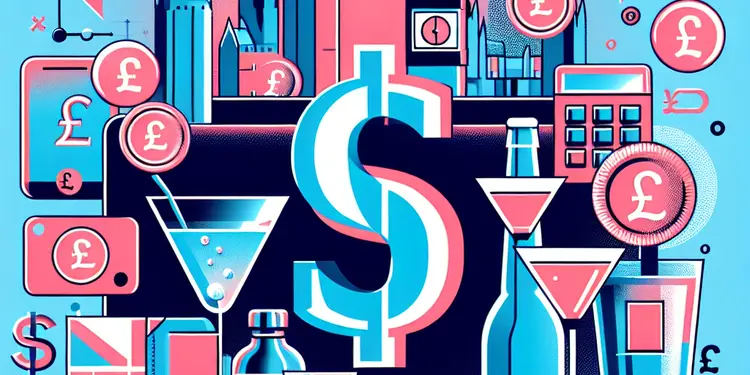
What are the social consequences of binge drinking?
Relevance: 76%
-
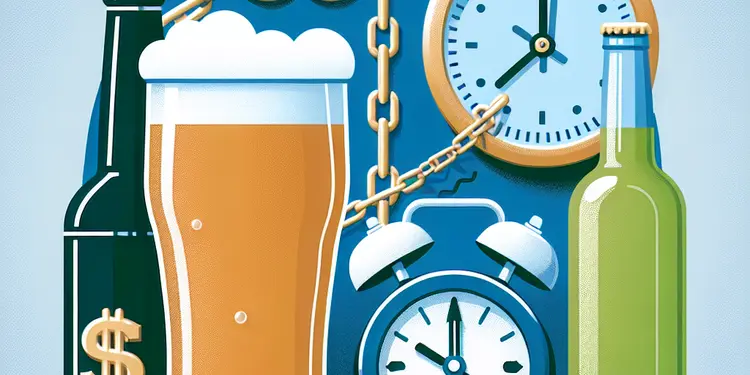
Can binge drinking lead to addiction?
Relevance: 75%
-
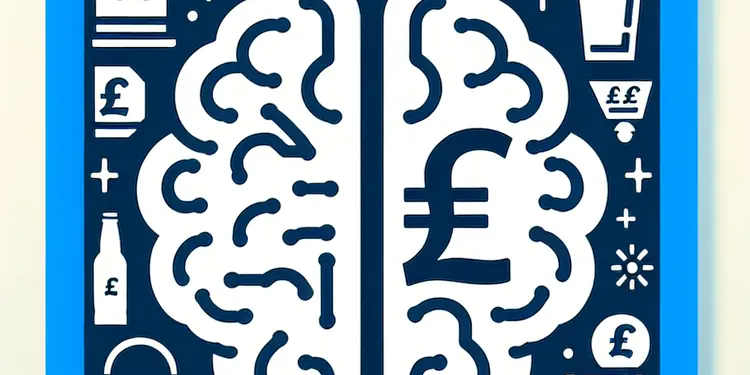
How does binge drinking affect the brain?
Relevance: 75%
-

Are there cultural factors in binge drinking?
Relevance: 71%
-
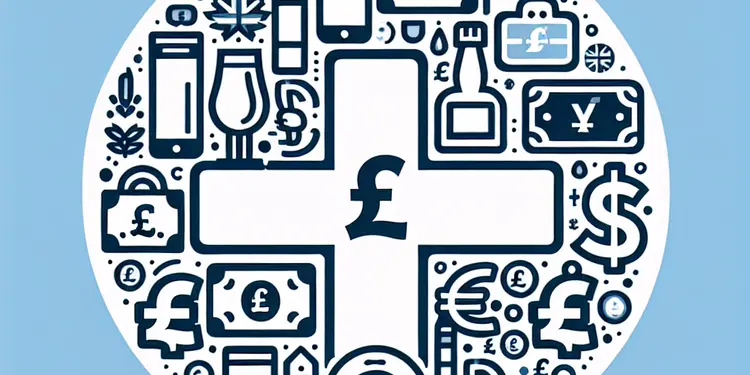
What can be done to prevent binge drinking?
Relevance: 70%
-
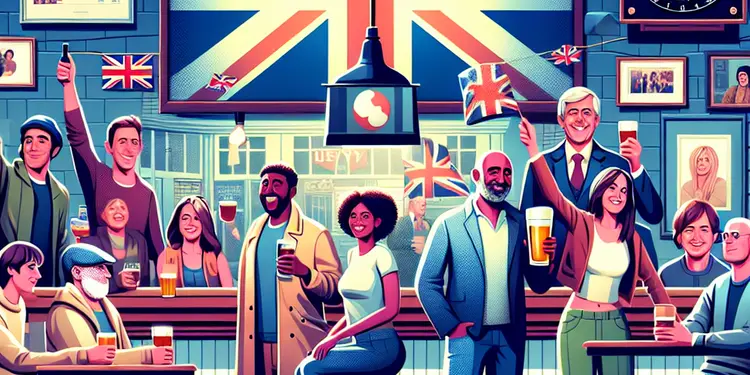
Is binge drinking more common in any specific demographic?
Relevance: 70%
-

Are there any laws against binge drinking?
Relevance: 70%
-
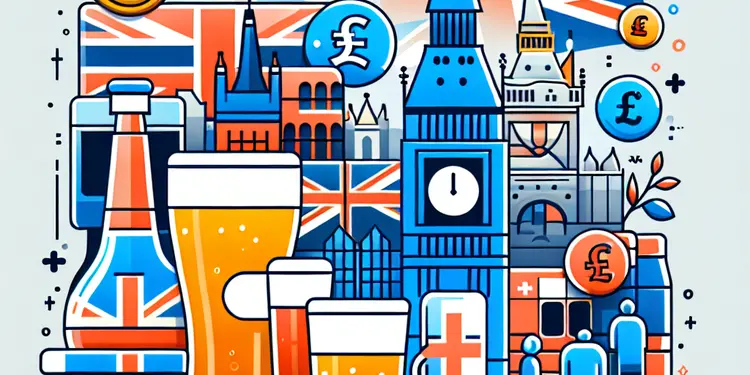
Why is binge drinking common among young adults?
Relevance: 69%
-

How does binge drinking impact academic or work performance?
Relevance: 69%
-
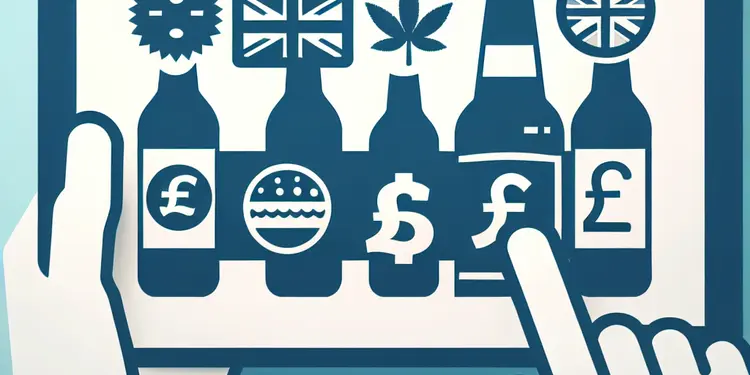
How can one reduce the risk of binge drinking?
Relevance: 68%
-
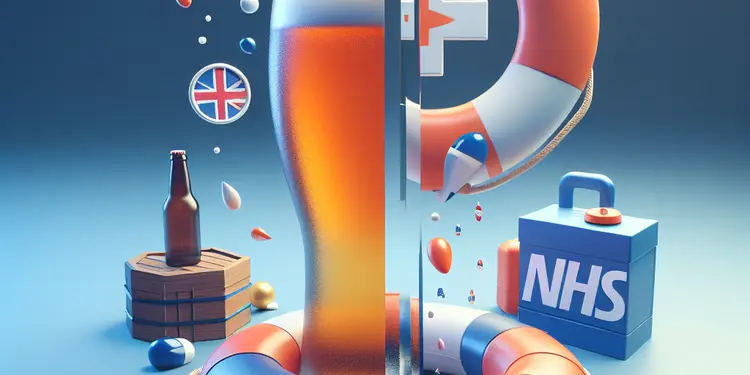
What resources are available for someone struggling with binge drinking?
Relevance: 67%
-
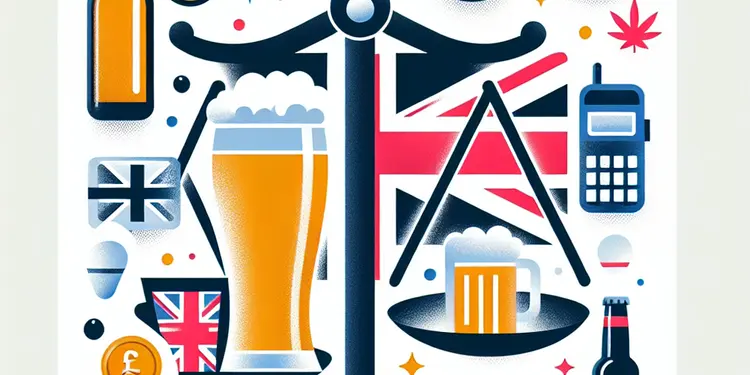
How does alcohol tolerance relate to binge drinking?
Relevance: 65%
-
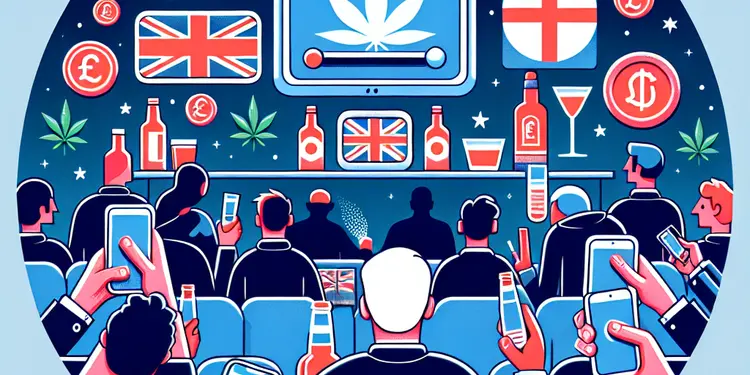
What is the role of peer pressure in binge drinking?
Relevance: 65%
-
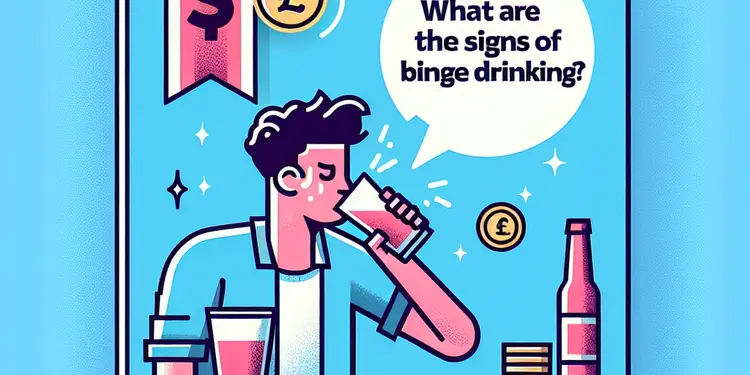
What are the signs of binge drinking?
Relevance: 57%
-
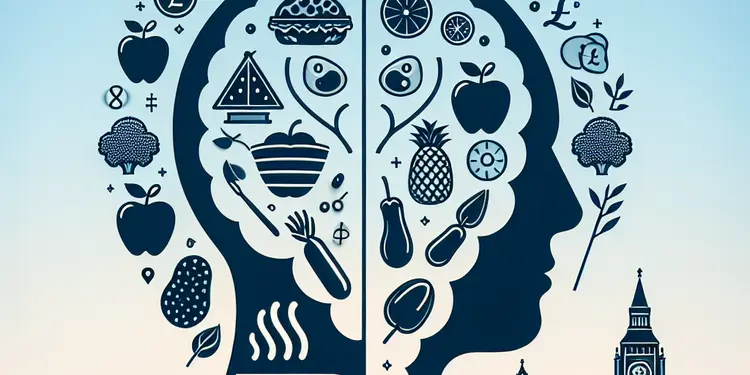
How do eating disorders affect mental health?
Relevance: 50%
-
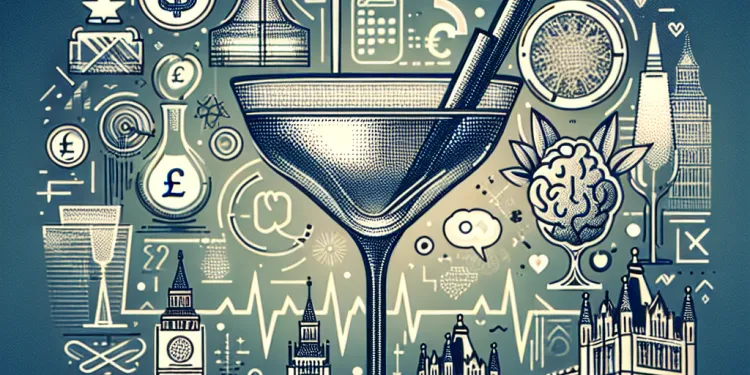
Can drink spiking cause long-term health effects?
Relevance: 44%
-
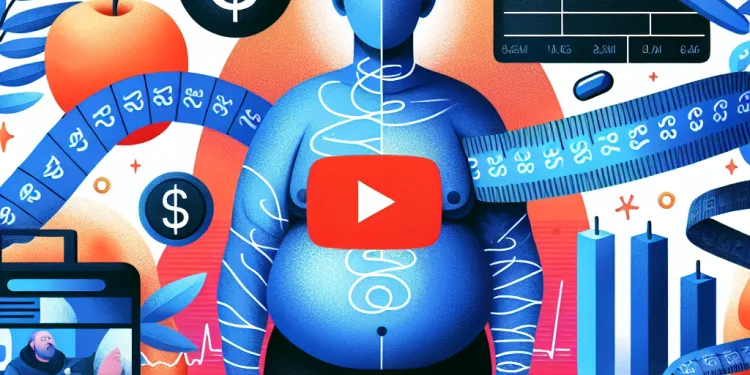
What is the impact of obesity on mental health?
Relevance: 43%
-

Mental Health Support Resources in the UK
Relevance: 43%
-

Mental Health Support Services in the UK
Relevance: 43%
-

Understanding Mental Health in Children
Relevance: 43%
-
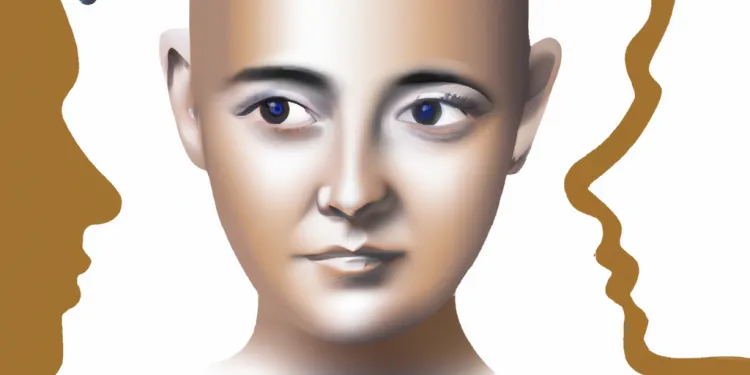
Mental Health Resources for Families
Relevance: 43%
-
Can eating disorders occur with other mental health conditions?
Relevance: 41%
-

Accessing Mental Health Support Resources in the UK
Relevance: 41%
-

Advancements in Mental Health Resources for Families
Relevance: 41%
-

Mental Health Support Resources for Families
Relevance: 40%
-

Mental Health: Laura's Story | NHS
Relevance: 40%
-
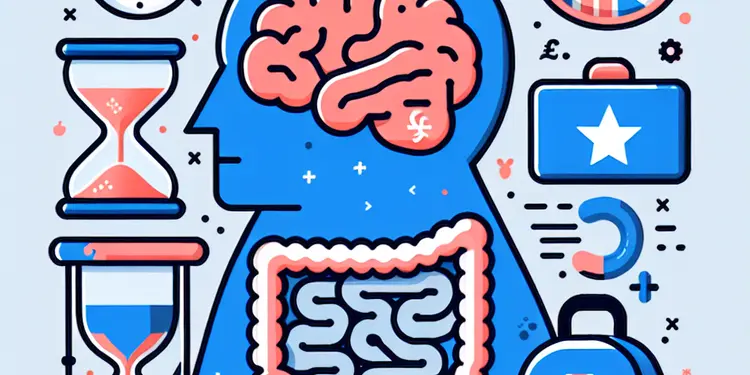
Can gut health affect mental health as one ages?
Relevance: 40%
-
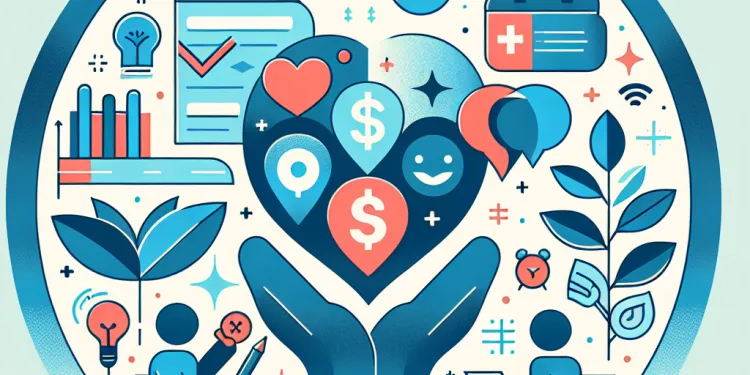
Mental Health Support for Families: Resources and Strategies
Relevance: 39%
-

Mental Health Support for Families: Resources and Guidance
Relevance: 39%
-
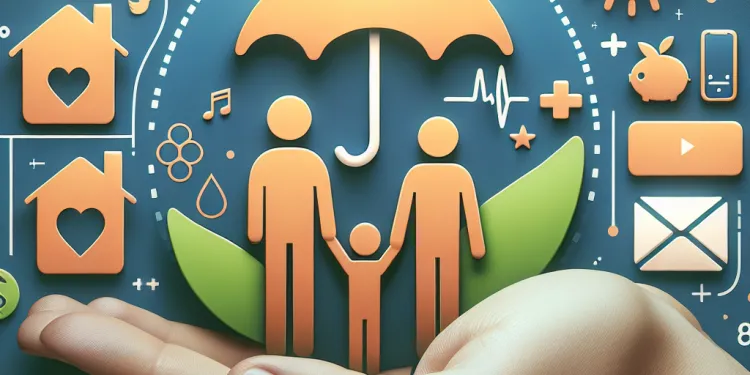
Mental Health Support for Families: Resources and Helplines
Relevance: 39%
-
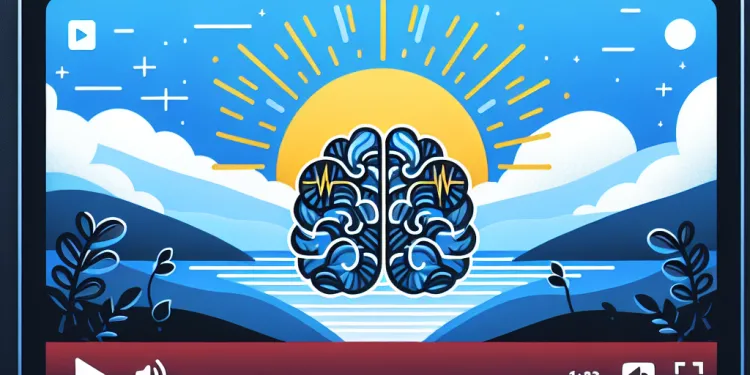
Current Challenges in Youth Mental Health Services
Relevance: 39%
-
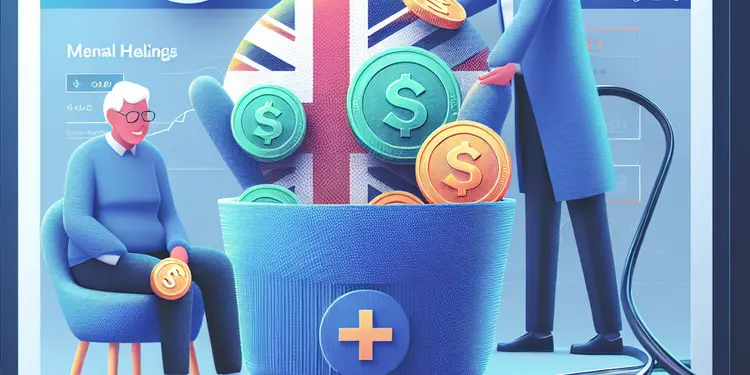
What mental health resources are available for seniors?
Relevance: 39%
-

Navigating Mental Health Services for Children and Adolescents
Relevance: 39%
-
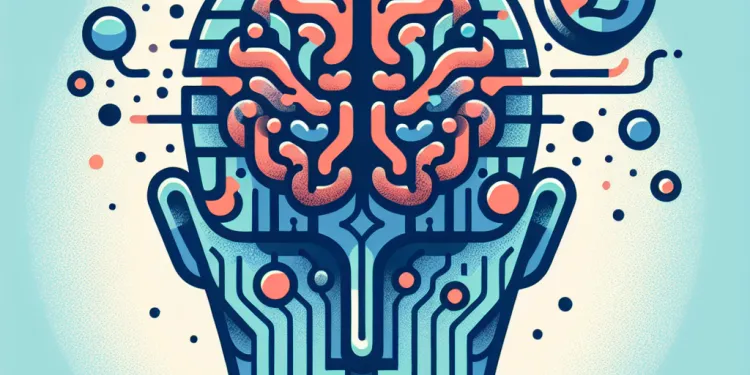
Can concussions lead to mental health issues?
Relevance: 39%
-
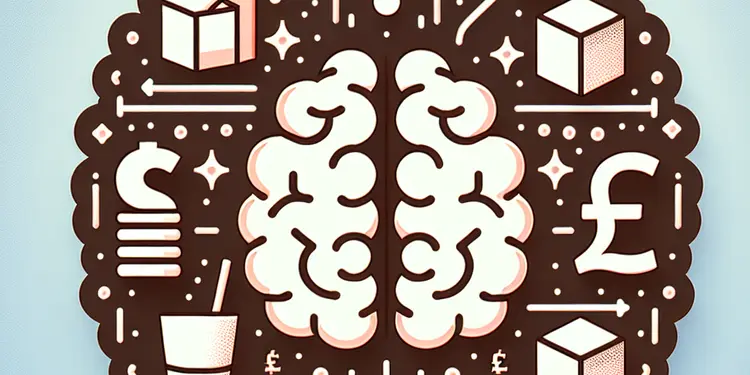
How does sugar impact mental health?
Relevance: 38%
Introduction
Binge drinking, defined as consuming a large amount of alcohol in a short period, is a significant concern in the UK. It is typically characterised by consuming over eight units for men and six units for women on a single occasion. While the immediate physical risks are well-documented, the mental health implications are equally profound and far-reaching.
Immediate Mental Health Effects
Binge drinking can induce immediate changes in mood and behaviour, often resulting in increased aggression, anxiety, and depression. Alcohol disrupts the balance of chemicals and processes in the brain that affect mood, such as serotonin, leading to impaired judgement and changes in perception. These effects can exacerbate mental health issues, creating a short-term negative impact.
Long-term Mental Health Consequences
Chronic binge drinking can lead to more severe long-term mental health problems. The repetitive cycle of heavy drinking and withdrawal can contribute to the development of chronic anxiety and depression. There is also evidence linking habitual binge drinking to the onset of mood disorders. Individuals may find themselves relying on alcohol as a coping mechanism, which can worsen their mental health over time.
Impact on Cognitive Function
Extended periods of binge drinking can affect cognitive functions such as memory, attention span, and decision-making abilities. These cognitive impairments are often due to alcohol’s neurotoxic effects on the brain. The brain’s ability to process and store information efficiently is compromised, potentially leading to issues with academic and occupational performance.
Social and Emotional Impact
Binge drinking can strain personal relationships, contributing to feelings of social isolation and emotional distress. The social stigma and personal guilt associated with excessive drinking can lead to further anxiety and depression. Isolation and poor social support are known risk factors for deteriorating mental health, thus creating a vicious cycle for those affected.
Risk of Addiction
Binge drinking increases the risk of developing alcohol dependency or addiction. Alcohol addiction is a mental health condition that requires clinical intervention. The transition from recreational binge drinking to dependency can subtly occur, often catching individuals off guard and significantly impacting their mental health.
Conclusion
In the UK, where binge drinking is a prevalent social issue, understanding its effects on mental health is crucial. Addressing binge drinking through early intervention and promoting mental health awareness can prevent the associated negative outcomes. Support services and education are key to mitigating the long-term impact of binge drinking on mental well-being, improving overall public health.
Introduction
Binge drinking means drinking a lot of alcohol very quickly. It is a big problem in the UK. For men, it is more than eight drinks, and for women, it is more than six drinks at one time. Binge drinking can hurt your body and mind.
Immediate Mental Health Effects
When people binge drink, it can make them feel angry, scared, or sad right away. Alcohol changes how the brain works, especially the parts that make you feel good or bad. Drinking can lead to poor choices and may make mental health problems worse for a short time.
Long-term Mental Health Consequences
If you binge drink a lot over time, it can lead to serious mental health problems. Drinking heavily and then stopping can make you feel really anxious or sad all the time. Some people start to rely on alcohol to feel better, which can make their mental health worse.
Impact on Cognitive Function
Drinking too much for a long time can hurt your brain. It can make it hard to remember things, pay attention, or make good decisions. This happens because alcohol can harm brain cells, making school or work harder.
Social and Emotional Impact
Binge drinking can hurt your relationships with friends and family. It can make you feel alone and upset. Feeling ashamed about drinking too much can also cause anxiety and depression. Being alone or not having support makes mental health problems worse.
Risk of Addiction
Binge drinking can lead to alcohol addiction. Addiction means you feel like you need alcohol all the time. It is a mental health problem and needs medical help. Sometimes people do not notice they are becoming addicted until it is too late.
Conclusion
Binge drinking is a big problem in the UK because it affects mental health. It is important to understand these effects and stop binge drinking early. Learning about mental health and having support can help people avoid long-term problems and improve overall health.
Frequently Asked Questions
What is binge drinking?
Binge drinking is the consumption of an excessive amount of alcohol in a short period. It typically involves drinking enough to bring blood alcohol concentration (BAC) levels to 0.08 g/dL or higher.
How does binge drinking influence mental health?
Binge drinking can lead to and exacerbate mental health issues such as depression, anxiety, and stress. It can also impair cognitive functions and decision-making.
Can binge drinking cause depression?
Yes, binge drinking can lead to depression. Alcohol is a central nervous system depressant that can alter brain chemistry and negatively impact mood.
Is there a link between binge drinking and anxiety?
Yes, binge drinking can either cause or worsen anxiety. Drinking heavily can increase anxiety levels and panic attacks, leading to a cycle of drinking to cope with anxiety.
Does binge drinking affect sleep patterns?
Binge drinking significantly disrupts sleep patterns, leading to poor sleep quality and insomnia. This can further contribute to mental health issues such as anxiety and depression.
How does binge drinking impact stress levels?
While people may binge drink to cope with stress, it often increases stress levels by affecting the body's stress response and increasing anxiety once the alcohol wears off.
Can binge drinking lead to substance abuse disorders?
Yes, binge drinking can pave the way for alcohol use disorders and increase the risk of other substance abuse disorders as individuals may seek other substances to cope with withdrawal symptoms.
What are the cognitive effects of binge drinking?
Binge drinking can impair cognitive functions such as memory, attention, and decision-making abilities. Long-term binge drinking can lead to lasting cognitive deficits.
Is binge drinking associated with suicidal thoughts?
Yes, there is an association between binge drinking and increased risk of suicidal thoughts and behaviors, particularly in individuals already experiencing mental health issues.
How does binge drinking affect emotional regulation?
Binge drinking can impair emotional regulation, making it difficult for individuals to manage their emotions and leading to mood swings, irritability, and aggression.
Can binge drinking lead to long-term mental health disorders?
Yes, chronic binge drinking can contribute to the development or exacerbation of long-term mental health disorders including depression, anxiety disorders, and addiction.
Does binge drinking affect social relationships?
Binge drinking can strain social relationships, leading to conflicts with friends and family due to behavior changes, aggression, or neglect of responsibilities.
How does binge drinking relate to impulsive behavior?
Binge drinking can increase impulsive behavior by impairing judgment and self-control, leading to risky, irrational, or regretful decisions.
Are young adults particularly at risk from mental health effects of binge drinking?
Yes, young adults and adolescents are particularly vulnerable to the mental health effects of binge drinking as their brains are still developing, making them more susceptible to alcohol's harmful effects.
What is the connection between binge drinking and PTSD?
Binge drinking can exacerbate symptoms of PTSD and is often used by individuals with PTSD as a way to self-medicate, leading to a harmful cycle of dependence and worsening symptoms.
Can binge drinking affect brain development in adolescents?
Yes, binge drinking can significantly impact brain development in adolescents and young adults, potentially leading to long-term deficits in cognitive and emotional regulation.
Does binge drinking impact professional life due to mental health issues?
Yes, binge drinking can lead to absenteeism, decreased performance, and conflicts in the workplace due to mental health issues such as depression and anxiety.
How does alcohol withdrawal affect mental health in binge drinkers?
Alcohol withdrawal can lead to serious mental health issues such as anxiety, depression, hallucinations, and even delirium tremens in severe cases.
What role does binge drinking play in developing alcohol dependency?
Binge drinking can quickly lead to physical dependence on alcohol, especially when done frequently, increasing the risk of developing alcohol use disorders.
Can lifestyle changes help mitigate the mental health effects of binge drinking?
Yes, adopting healthier coping mechanisms, seeking therapy, and reducing or eliminating alcohol consumption can significantly mitigate the negative mental health effects of binge drinking.
What is binge drinking?
Binge drinking means drinking a lot of alcohol in a short time. People who binge drink might get very drunk quickly. This can be bad for their health. If you are worried about binge drinking, talk to someone you trust. You can also use apps or tools to help you drink less.
Binge drinking means drinking a lot of alcohol in a short time. This usually means drinking enough to make the alcohol level in your blood reach 0.08 or more.
If you or someone you know might be binge drinking, there are ways to get support. You can talk to a trusted adult or a health professional.
How does drinking too much alcohol affect your mind?
Drinking a lot of alcohol in a short time is called binge drinking. This can make you feel sad, worried, or stressed.
Ideas to help:
- Talk to a friend or family member about how you feel.
- Try to drink less alcohol.
- Speak to a doctor or counselor for advice.
Drinking a lot of alcohol really fast can make mental health problems worse. This includes feeling very sad, worried, or stressed. It can also make it harder to think clearly and make good choices.
Can Drinking Too Much Make You Sad?
When people drink a lot of alcohol very quickly, it is called binge drinking. Binge drinking can sometimes make you feel sad. It is important to drink alcohol carefully.
If you feel sad a lot, talk to someone you trust, like a family member or a teacher. They can help you find ways to feel better.
Yes, drinking too much alcohol in a short time can make you feel very sad. Alcohol can change how your brain works and make your mood worse.
Does drinking too much alcohol make you feel worried?
Drinking a lot of alcohol can make you feel more worried or scared. When you drink too much, it can make your worries worse. This can make you want to drink more to try to feel better. It's like a circle that is hard to stop.
Here are some tips that might help:
- Try talking to a friend or a grown-up you trust about how you feel.
- You can also try deep breathing to help calm down when you feel scared or worried.
- There are apps that can help you relax and feel better, like ones with calming music or fun games.
- Remember, it's okay to ask for help if you need it.
Does drinking a lot of alcohol change how you sleep?
Drinking a lot of alcohol in one go can make it very hard to sleep well. This can mean you don't get good sleep and might feel awake at night. Because of this, you can start to feel worried or sad too.
What happens to stress when someone drinks a lot of alcohol at once?
Sometimes people drink a lot of alcohol to feel less stressed. But, drinking too much can actually make you feel more stressed. When the alcohol is gone, you might feel even more worried and anxious.
Can drinking too much alcohol cause other drug problems?
Yes, drinking too much alcohol in a short time can lead to problems with alcohol later. It can also make it easier to start using other drugs. This is because people might use other drugs when they stop drinking and feel bad.
How does drinking a lot of alcohol affect the brain?
Drinking a lot of alcohol at once can make it hard to remember things, focus, and make good choices. If you keep drinking like this for a long time, these problems can last.
Does drinking too much alcohol at once make you think about hurting yourself?
Yes, drinking a lot of alcohol at once can make people think about hurting themselves. This is especially true if they are already feeling sad or have other mental health problems.
How does drinking too much alcohol affect feelings?
Drinking a lot of alcohol at once can make it hard for people to control how they feel. It can cause their mood to change quickly, make them feel grumpy, or even make them angry.
Can drinking lots of alcohol at once cause long-term mental health problems?
Yes, drinking too much alcohol all the time can make mental health problems worse, like feeling very sad or very worried. It can also lead to becoming addicted to alcohol.
Does Drinking a Lot Affect Friendships?
Drinking a lot of alcohol can change the way you act. It might make it harder to get along with friends and family. Here's how: - **Arguments**: Drinking too much can lead to fights or arguments. - **Time**: If you spend a lot of time drinking, you might see your friends less. - **Feelings**: Alcohol can make you feel sad or angry, which can upset others. **Tips to Help**: - **Talk**: Share your feelings with friends or family. - **Plan**: Make time for activities without alcohol. - **Support**: Look for groups or people that can help you drink less. Using pictures, charts, or talking with someone can make this easier to understand.Drinking a lot of alcohol can hurt your relationships. It can make you argue with your friends and family. You might change how you act, get angry, or not take care of important things.
Using pictures or drawings can help understand big ideas.
How are drinking too much alcohol and acting without thinking connected?
Drinking a lot of alcohol at once can make you act without thinking. It can be hard to make good decisions. This might lead you to do risky things or things you might regret later.
Does binge drinking harm young adults' mental health?
Yes, young people and teenagers are at risk when they drink too much alcohol. Their brains are still growing, so alcohol can harm them more easily.
How are binge drinking and PTSD related?
Some people drink a lot of alcohol in a short time. This is called binge drinking.
PTSD stands for post-traumatic stress disorder. It is when someone feels very scared or upset after something bad has happened.
People with PTSD might drink a lot to try and feel better.
But drinking too much can make PTSD worse.
It is important to talk to someone who can help, like a doctor or a counselor.
Binge drinking means drinking a lot of alcohol in a short time. It can make PTSD (a kind of stress after a bad event) worse. Some people with PTSD drink to feel better, but this can make things worse and cause more problems.
Does drinking too much alcohol harm a young person's brain?
Yes, drinking a lot of alcohol quickly can harm the growing brains of teenagers and young adults. This can cause problems with thinking and controlling emotions that might last a long time.
Can drinking too much alcohol affect my work because of mental health problems?
Yes, drinking a lot of alcohol in a short time can cause many problems at work. It can make you miss work, not do your job well, and have arguments with people. It can also make you feel sad or worried.
--- Here are some tools and techniques that may help: - Set reminders to help you manage your time better. - Talk to someone you trust if you feel sad or worried. - Use a calendar or planner to keep track of your tasks. - Take breaks to relax and clear your mind.How does stopping alcohol affect the mental health of people who drink a lot at once?
When someone stops drinking alcohol, it can make them feel very unwell. They might feel worried or sad. They could see or hear things that are not there. In really bad cases, they might feel very confused and shaky.
How does drinking a lot at once make you need alcohol more?
Drinking a lot of alcohol in a short time can make your body want alcohol more and more. If you do this often, it can be bad for your health and might lead to problems with alcohol.
Can changing your habits help with the mental health problems from heavy drinking?
Yes, there are ways to feel better and help your brain if you stop drinking too much alcohol. You can find new hobbies, talk to a therapist, and try to drink less or stop. This can make you feel happier and healthier.
Useful Links
This website offers general information and is not a substitute for professional advice.
Always seek guidance from qualified professionals.
If you have any medical concerns or need urgent help, contact a healthcare professional or emergency services immediately.
Some of this content was generated with AI assistance. We’ve done our best to keep it accurate, helpful, and human-friendly.
- Ergsy carfully checks the information in the videos we provide here.
- Videos shown by Youtube after a video has completed, have NOT been reviewed by ERGSY.
- To view, click the arrow in centre of video.
- Most of the videos you find here will have subtitles and/or closed captions available.
- You may need to turn these on, and choose your preferred language.
- Go to the video you'd like to watch.
- If closed captions (CC) are available, settings will be visible on the bottom right of the video player.
- To turn on Captions, click settings .
- To turn off Captions, click settings again.
More Items From Ergsy search
-

How does binge drinking affect mental health?
Relevance: 100%
-

Can binge drinking affect physical health?
Relevance: 87%
-

What is binge drinking?
Relevance: 82%
-

What are the risks associated with binge drinking?
Relevance: 78%
-

How is binge drinking typically defined?
Relevance: 77%
-

What are the social consequences of binge drinking?
Relevance: 76%
-

Can binge drinking lead to addiction?
Relevance: 75%
-

How does binge drinking affect the brain?
Relevance: 75%
-

Are there cultural factors in binge drinking?
Relevance: 71%
-

What can be done to prevent binge drinking?
Relevance: 70%
-

Is binge drinking more common in any specific demographic?
Relevance: 70%
-

Are there any laws against binge drinking?
Relevance: 70%
-

Why is binge drinking common among young adults?
Relevance: 69%
-

How does binge drinking impact academic or work performance?
Relevance: 69%
-

How can one reduce the risk of binge drinking?
Relevance: 68%
-

What resources are available for someone struggling with binge drinking?
Relevance: 67%
-

How does alcohol tolerance relate to binge drinking?
Relevance: 65%
-

What is the role of peer pressure in binge drinking?
Relevance: 65%
-

What are the signs of binge drinking?
Relevance: 57%
-

How do eating disorders affect mental health?
Relevance: 50%
-

Can drink spiking cause long-term health effects?
Relevance: 44%
-

What is the impact of obesity on mental health?
Relevance: 43%
-

Mental Health Support Resources in the UK
Relevance: 43%
-

Mental Health Support Services in the UK
Relevance: 43%
-

Understanding Mental Health in Children
Relevance: 43%
-

Mental Health Resources for Families
Relevance: 43%
-
Can eating disorders occur with other mental health conditions?
Relevance: 41%
-

Accessing Mental Health Support Resources in the UK
Relevance: 41%
-

Advancements in Mental Health Resources for Families
Relevance: 41%
-

Mental Health Support Resources for Families
Relevance: 40%
-

Mental Health: Laura's Story | NHS
Relevance: 40%
-

Can gut health affect mental health as one ages?
Relevance: 40%
-

Mental Health Support for Families: Resources and Strategies
Relevance: 39%
-

Mental Health Support for Families: Resources and Guidance
Relevance: 39%
-

Mental Health Support for Families: Resources and Helplines
Relevance: 39%
-

Current Challenges in Youth Mental Health Services
Relevance: 39%
-

What mental health resources are available for seniors?
Relevance: 39%
-

Navigating Mental Health Services for Children and Adolescents
Relevance: 39%
-

Can concussions lead to mental health issues?
Relevance: 39%
-

How does sugar impact mental health?
Relevance: 38%


